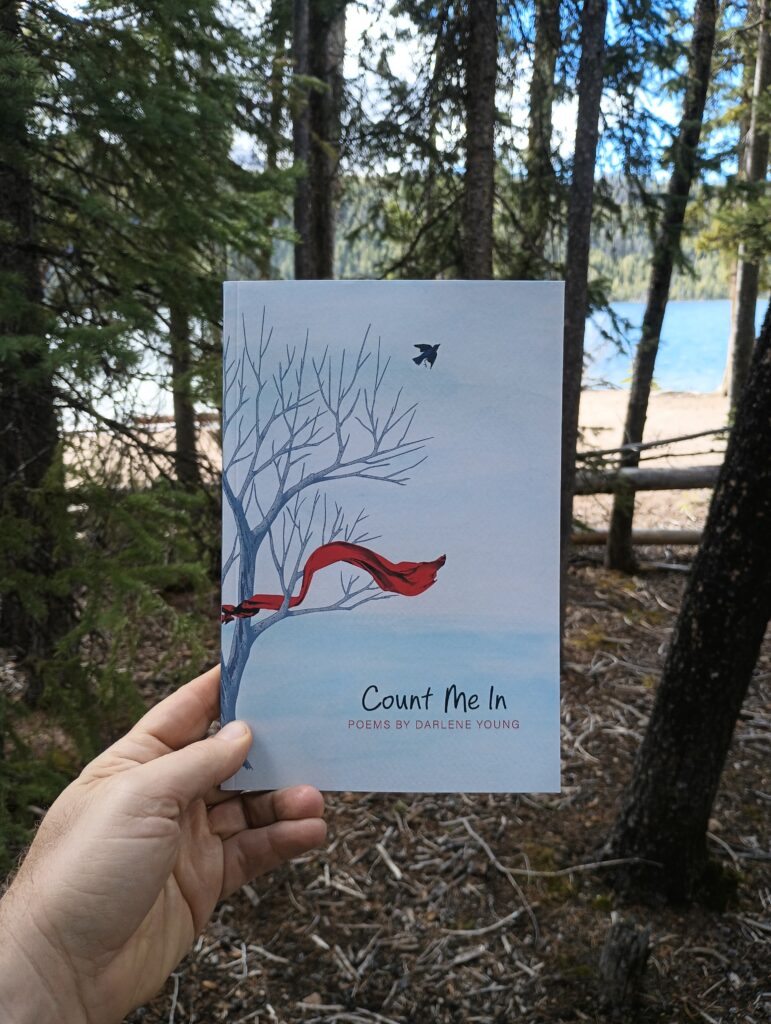Review
======
Title: Count Me In
Author: Darlene Young
Publisher: Signature Books
Genre: Poetry
Year Published: 2024
Number of Pages: 73
Binding: Softcover
ISBN-13: 978-1-56085-474-6
Price: $ 14.95
Reviewed by Gabriel González for the Association for Mormon Letters
Darlene Young’s Count Me In is her third poetry collection. Like her previous two books —Homespun and Angel Feathers (BCC Press 2019) and Here (BCC Press 2023) — this is a collection of distinctly Mormon poems. This is the case, to some degree, due to her topics of choice: Moroni and the three Nephites, visiting the Kirtland Temple and hiding up treasures on the earth, Handel’s Messiah, and Lazarus after being raised from the dead. There is also the referencing of Utah and the Mormons. But it is more than that. It’s the way the divine mingles with the mundane in these poems.
This is, in fact, a running thread through all of her poetry. There’s something about Latter-Day Saint “doctrine” or, to use a more ecumenical term, “theology” that is radically different from what most other Christian denominations believe. Specifically, we believe that the spiritual and the physical are different manifestations of the same stuff. Joseph Smith taught that the Spirit is matter refined and purified, and we read in the scriptures that to God all things are spiritual, even the temporal. Thus, our theology makes the material spiritual and, therefore, that which is mundane potentially sacred. And that is what Young captures so very well in her poetry. This is true of her previous two collections, and it’s certainly true of Count Me In.
Thus, in her current collection, God is “a god of aardvarks and yard sales.” He is God who winks “in the pink / light” above the smog. In Young’s poetry, things that would normally be considered mundane become “as holy as any.” And sometimes, in holy places, like the temple, your body really, really needs to empty its bladder.
The choice of language, the conversational tone, and the theological viewpoint, all of this gives the poems an extremely contemporary feel, making them feel more immediate and identifiable than sacred poetry tends to be. Poets of old cried that God would make them their true undershepherds, but Young asks to be “God’s backup singer” and she stumbles along, aging body and all, so that she can endure to the end, or in her parlance, she can be “tap-dancing until the curtain call.” In short, Young provides a new kind of sacred poetry, one that speaks to modern Latter-day Saints, and for that reason alone, Count Me In is worth the read.

